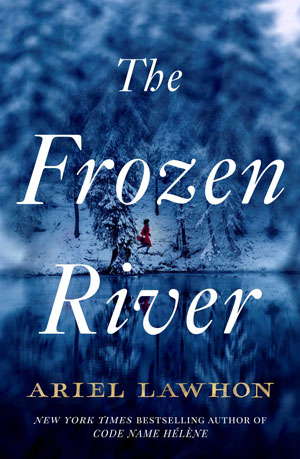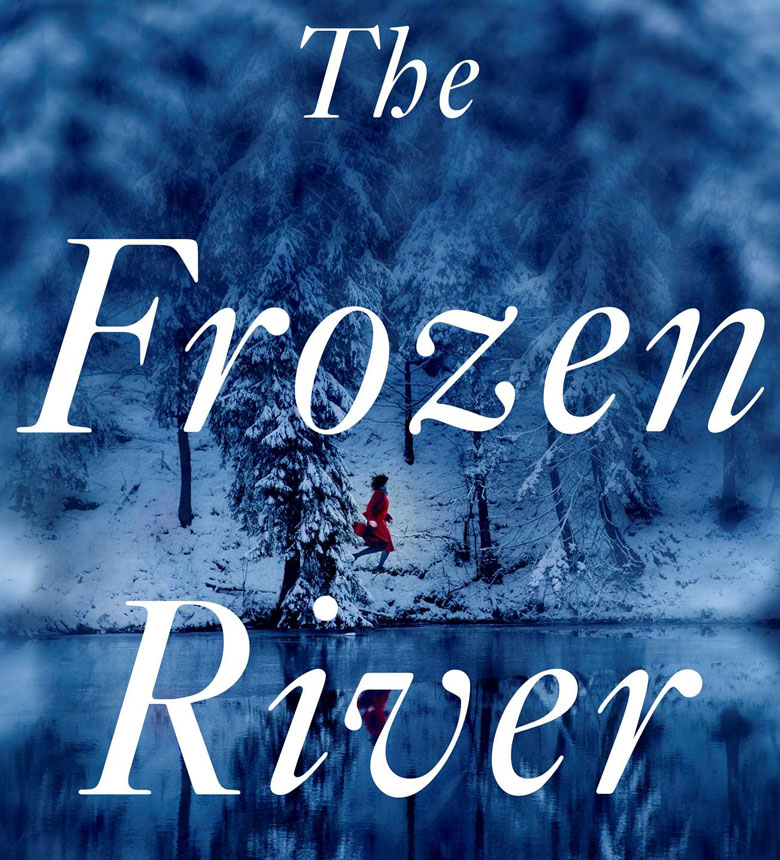The Frozen River
By Ariel Lawhon (Doubleday, 2023)
That The Frozen River was set in Maine was what initially drew my interest, but this historical novel based on the diaries of 18th century midwife Martha Moore Ballard delivered so much more.
I had long ago read scholar Laurel Thatcher Ulrich’s treatment of Martha’s journals, A Midwifes Tale:The Life of Martha Ballard, Based on Her Diary, 1785-1812 and watched the PBS movie based on it.
Most readers will recognize the dire circumstances of women’s lives several hundred years ago. And women remain second-class citizens to men in many ways—career opportunities and pay, freedom to make one’s own decisions, reproductive rights, and so on. I think Ariel Lawhon illustrates examples of some of those in The Frozen River, while touting progress in women’s literacy at the time.
Lawhon has based her book on the original document in the Maine State Archives and not Ulrich’s Pulitzer-Prize winning biography and turns certain events from the diaries into her novel. In an author’s note, Lawhon describes her treatment of the original diary and the changes she made, including the timing of some events and character names.
We are given no example of Martha supporting family planning or spacing of babies for the sake of a mother’s health…
She asserts that “roughly 75 percent of what happens on these pages closely follows the historical record.” But she emphatically reminds us the book is “inspired by real events as opposed to being based on them.” The book is her version of “what could have happened.”
Lawhon recommends readers also pick up A Midwife’s Tale and read it.

“There are numerous instances where I changed, edited, or condensed Martha’s diary entries,” she notes. “A very small handful are fictional. My goal was to take many of the things that interested me about Martha’s life and condense them into one story that takes place over a six-month period.”
Some readers may already have been familiar with Lawhon; she is a co-author of an earlier book, promoted online as “Christian” literature. When Lawhon shares personal acknowledgments at the end of The Frozen River, she describes Jesus as her savior, writing it is her greatest hope that “His great love is reflected in the pages of this book.”
At first I wondered if I had missed something in her book that might have indicated Martha’s story or character served to deliver that Christian message. Lawhon does say her Martha is a Christian, and specifies her Martha is different from Ulrich’s.
In fact, religion as such didn’t seem to play a role. But I did wonder about midwives and some aspects of their job that might have been omitted or changed by Lawhon.
I am no expert on this history. I checked, and in Ulrich’s book, it seems many midwives in that period put a woman’s health and well-being first. For various reasons, large families were seen as beneficial at that time and successful pregnancies and deliveries of their patients’ babies—as was Martha’s record—could be a measure of good practice.
But in Lawhon’s book, we are given no example of Martha supporting family planning or spacing of babies for the sake of a mother’s health or well-being. Lawhon offers examples of women enduring serial pregnancies until a father’s goal of having a son is successful.
Rape victims—Martha tends to one in the story—could be expected to carry to term children conceived through this violence, no matter the psychological costs. Lawhon’s Martha knows herbs could help end pregnancy (midwives made many herbal remedies but decided against their use.
The Frozen River curates history in Maine at that time to show a status quo. Lawhon seems to think what is best for a woman is not necessarily based on what they think or want.
While she expresses great respect for midwives and the care they provide, in her home state of Tennessee that care is greatly circumscribed by law.
I think The Frozen River might be construed as having a message for women that abortions aren’t in anyone’s best interest (and by extension, one wonders, deserve to be illegal?). But read both books and see what you think.
Tina Cohen is a therapist who spends part of the year on Vinalhaven.





